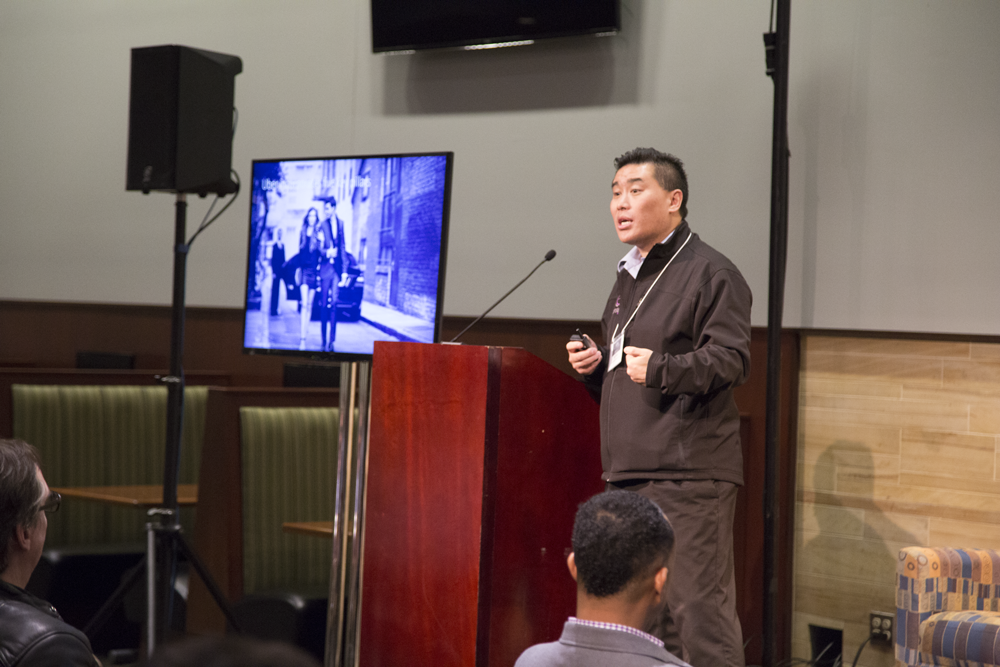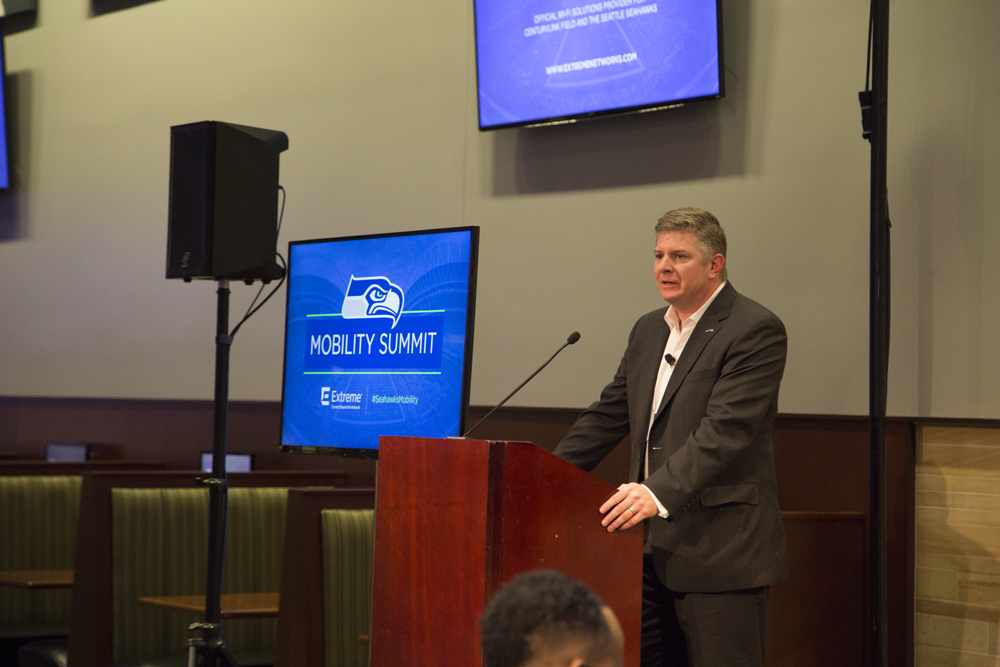Takeaways from the Seahawks Mobility Summit

Digital Darwinism: Disrupt or Be Disrupted!
In today’s digital landscape, where dramatic shifts in technology have forever changed consumer habits around how we engage and interact, it’s increasingly evident that organizations must act fast to understand and address these trends sooner than later. As R ‘Ray’ Wang, digital guru and thought-provoker at Constellation Research candidly puts it, “Digital Darwinism is unkind to those who wait.” The message was clear: ultimately, if you fail to transform your business to meet the growing expectations of today’s consumers you’ll likely be left behind, regardless of your industry.

[R ‘Ray’ Wang, Principle Analyst, Founder & Chairman at Constellation Research, Inc. For more informed insights and perspectives, I would encourage you to follow Ray on Twitter at @rwang0.]
This was the reoccurring sentiment at the second annual Seahawks Mobility Summit at CenturyLink Field in Seattle, where technology thought leaders and industry analysts not only shared insights around mobility, but on a number of trends in technology impacting businesses today, like leveraging social networks, harnessing big data, integrating cloud-base solutions, and addressing the emergence of the Internet of Things. “Digital Disruption,’ as Wang coins it, isn’t singularly focused on technology shifts, but more importantly how these shifts are transforming business models and the way in which we engage.
Such decisions like failing to develop a legitimate social media presence, not investing in interactive digital engagement platforms, or omitting mobile as a focal point in your business strategy are all examples of potential shortcomings. For Wang, the proof is in the pudding, as 52% of Fortune 500 companies since 2000 are now gone. Not to mention, companies considered ‘digital leaders,’ or organizations with a comprehensive digital strategy, own just about 70% of the market share in their respective industries.
‘Digital Disruption’ & the Seattle Seahawks
As we learned above, ‘digital disruption’ isn’t exclusive to select industries; the impact of digital transformation spans across businesses, including sports and entertainment. The Seattle Seahawks understood this fact, and while their game day experience at CenturyLink Field is certainly one to be proud of, arguably rivaling any other stadium experience in the NFL, their organization recognized the need to improve inherent aspects of this experience. For this reason, before the 2014 NFL season the Seahawks implemented a high-density Wi-Fi solution at CenturyLink Field.
Chip Suttles, VP of Technology for the Seattle Seahawks, described the team’s motivation to invest in this technology as a critical first step to pursue additional digital initiatives within the venue, coupled with the desire to enable fans and venue goers with the full use of their mobile devices while attending NFL/MLS games, or one of their other 180 yearly events. With data usage in-venue nearly quadrupling since the Wi-Fi deployment’s inception, and with concurrent and peak Wi-Fi usage rates growing significantly year over year, it’s safe to say the fans are responding favorably to the new service. The upgraded Wi-Fi has not only improved the in-venue experience for fans, it has better supported critical event operations at CenturyLink Field.
Now that a robust infrastructure has been built, mobile connectivity dramatically improved, and access to Wi-Fi analytics (to understand fan engagement patterns) enabled, Chip and the Seahawks are now able to explore innovative fan engagement strategies and differentiated mobile services, such a direct marketing campaigns to fans, promotion and expansion of the Seahawks game day app, and new in-venue service offerings and loyalty programs. None of this would have been possible without the Wi-Fi network. It’ll be fascinating to hear how the Seahawks plan to continue to embrace digital disruption moving forward.

[Chip Suttles, VP of Technology for the Seattle Seahawks, discusses the impact mobile and digital on the Seahawks organization. For more from Chip, follow his Twitter handle at @chipsuttles. Right Image: CenturyLink Field]
Mobility and our ‘Always On’ Culture
The Mobility Summit wrapped up with a short panel discussion moderated by Ray Wang around the topic of mobility, featuring Chip Suttles, Erik Jones, CTO at University of Washington, and Jim DuBois, CTO at Microsoft. While the panelists undoubtedly come from different business backgrounds, their views on mobility and how it impacts their respective businesses were strikingly similar.
For all over the panelists, mobility means more than a device or a service, it means living in an “Always On” culture, where unfettered access is crucial and context is king – delivering the right data to the right people at the right time. The goal being to add value and convenience to consumers while also optimizing your business.
As a result, connecting a device is important, but maybe it isn’t as important as connecting people; as Wang points out: “we’re moving away from selling products and services to keeping brand promises in this attention economy.” Experiences and outcomes are more highly sought after, because these are what impact consumers the most and keep them coming back for more. The catch: in order to make these meaningful connections and continue to innovate as an organization, it requires collaboration between both business AND technology leaders. Otherwise, you may just be the next victim of digital disruption!

[From left to right, Erik Jones, Jim DuBois, and Chip Suttles at the Seahawks Mobility Summit panel discussion.]
For more information regarding these topics, please feel free to click on the links below.